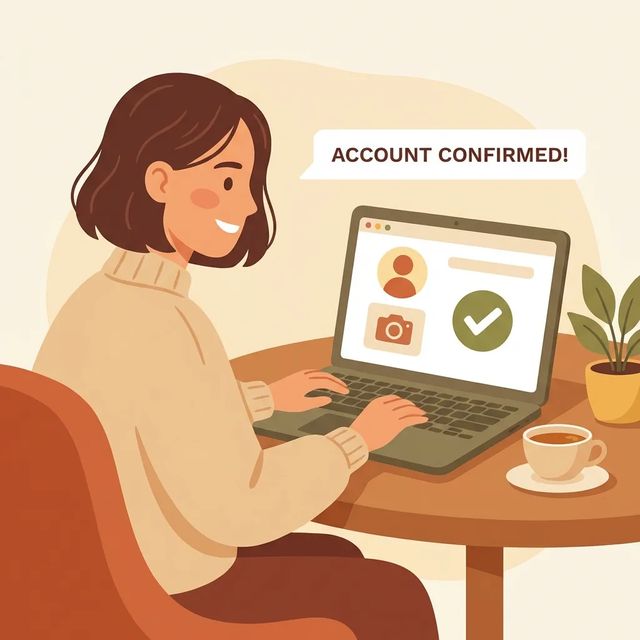Ottawa County Detention Facility, OH
Need to reach someone at Ottawa County Detention Facility? Look up an inmate, send messages or mail, add commissary funds, or schedule a visit.
Explore
Find an Inmate at Ottawa County Detention Facility, OH
Search for a loved one and send messages and photos in minutes.

Guides for This Facility

How to Visit Ottawa County Detention Facility, OH (OH)
Ottawa County Detention Facility uses video visitation. The main prep work is registering and making sure your device is ready before you try to schedule.
Read Guide
How to Contact an Inmate at Ottawa County Detention Facility, OH (OH)
Trying to stay in touch with someone at Ottawa County Detention Facility? Your two main options are video visitation through ICSolutions and mail handled through a scanning process. Here's how each one works and what to double-check before you send anything.
Read Guide
How to Send Money to Ottawa County Detention Facility, OH (OH)
Trying to put money on someone's account at Ottawa County Detention Facility? Start by knowing which payment methods the jail actually accepts. One option is clearly off the table: money orders.
Read GuideAt a Glance
Visitation
- Video visitation replaces traditional face-to-face visits and is conducted via video kiosks while inmates remain in their housing units.
- Offsite visitors must download and test the visitation application on their device or computer before scheduling a visit.
- You can register, add funds, schedule visits, or connect to offsite visits from a computer using the ICSolutions website.
Communication
- Video visitation replaces traditional face-to-face visits and is conducted via video kiosks while inmates remain in their housing units.
- Onsite video visitation is conducted using video terminals located in the facility’s visitation center.
- Visitors must register at no cost at icsolutions.com to participate in video visitation.
Sending Commissary
- Ottawa County Detention Facility does not accept money orders.
- Most deposit channels require the inmate’s full name and booking or ID number.
- Verify the facility’s approved deposit channels before sending money to avoid unofficial sites or scams.
Based on official sources and community feedback.Learn how we verify
Topic Overviews
Visitation
Ottawa County Detention Facility has replaced traditional in-person visits with video visitation. Inmates stay in their housing units while visitors use on-site kiosks, or you can connect remotely through the ICSolutions platform. Planning to visit from home? Download and test the visitation app on your device before scheduling so you can confirm compatibility and that your connection works. You can register, add funds, and schedule visits from a computer through the ICSolutions website. For iOS devices, grab the free ICS Mobile (ICSolutions) app. Like most Ohio facilities, visits run through the approved portal and require prior approval before you can book a session.
Read full guideCommunication
Ottawa County Detention Facility has replaced traditional face-to-face visits with video visitation. Onsite visits happen at video terminals in the facility's visitation center while the inmate stays in their housing unit. To participate, register for free at icsolutions.com. From there you can also add funds, schedule a visit, or connect from a computer. Offsite video visits let you connect from your own device, but they're fee-based and pricing varies by facility. Connectivity problems during an offsite session are not refundable, so download and test the vendor app before you schedule. All sessions are routinely monitored and follow vendor rules. You may need visitor approval and ID during enrollment.
Read full guideSending Commissary
One clear rule at Ottawa County Detention Facility: the jail does not accept money orders. Don't hand cash to staff either. Most facilities use approved third-party deposit channels like online portals, phone deposits, or lobby kiosks. Confirm which options Ottawa County currently accepts before you pay. Deposits typically go into an inmate trust or commissary account and can cover commissary purchases, phone time, hygiene items, fees, and other obligations. Have the inmate's full name and booking or ID number ready. Deposit systems usually require this info, and some may ask you to register an account or add the recipient first. Watch for convenience or processing fees, and stick to official vendors to avoid scams.
Read full guideCommon Questions
Showing 6 of 9How do I schedule a visit at Ottawa County Detention Facility?
Register and schedule visits through the ICSolutions portal or website used by the facility. You must be approved before you can book, so follow the portal steps to complete approval and scheduling.
VisitationCan I visit in person at Ottawa County or is it video-only?
Video only. Ottawa County uses video visitation in place of traditional face-to-face visits. You can either use onsite kiosks at the facility or connect remotely through offsite video options.
VisitationDo I need an app to do an offsite video visit to Ottawa County?
Yes. For offsite visits, you must download and test the visitation application before scheduling to make sure your device works. On iOS, you can use the free ICS Mobile (ICSolutions) app from the Apple App Store.
VisitationHow do I register to do a video visit with an inmate at Ottawa County Detention Facility?
Start by registering for free at icsolutions.com. Visitor registration is required for video visits. From the ICSolutions website, you can also schedule visits, add funds, or connect from a computer.
CommunicationCan I visit an inmate offsite from my phone or computer?
Yes. Offsite video visits are supported, but they're fee-based and costs vary by facility. Download and test the ICSolutions app on your device or computer before scheduling. Internet connectivity problems during offsite visits are not refunded.
CommunicationWhere are onsite video visits held at Ottawa County Detention Facility?
Onsite video visits are held at video terminals in the facility’s visitation center. The inmate remains in their housing unit during the session.
CommunicationMore Guides
Ready to Connect?
Search for your loved one to start communicating today
Did You Know?
Ottawa County Detention Facility in Ohio stopped accepting regular mail as of May 27, 2024. Only legal processes are accepted.
This guide is compiled from official facility documentation and community feedback. Learn how we verify
